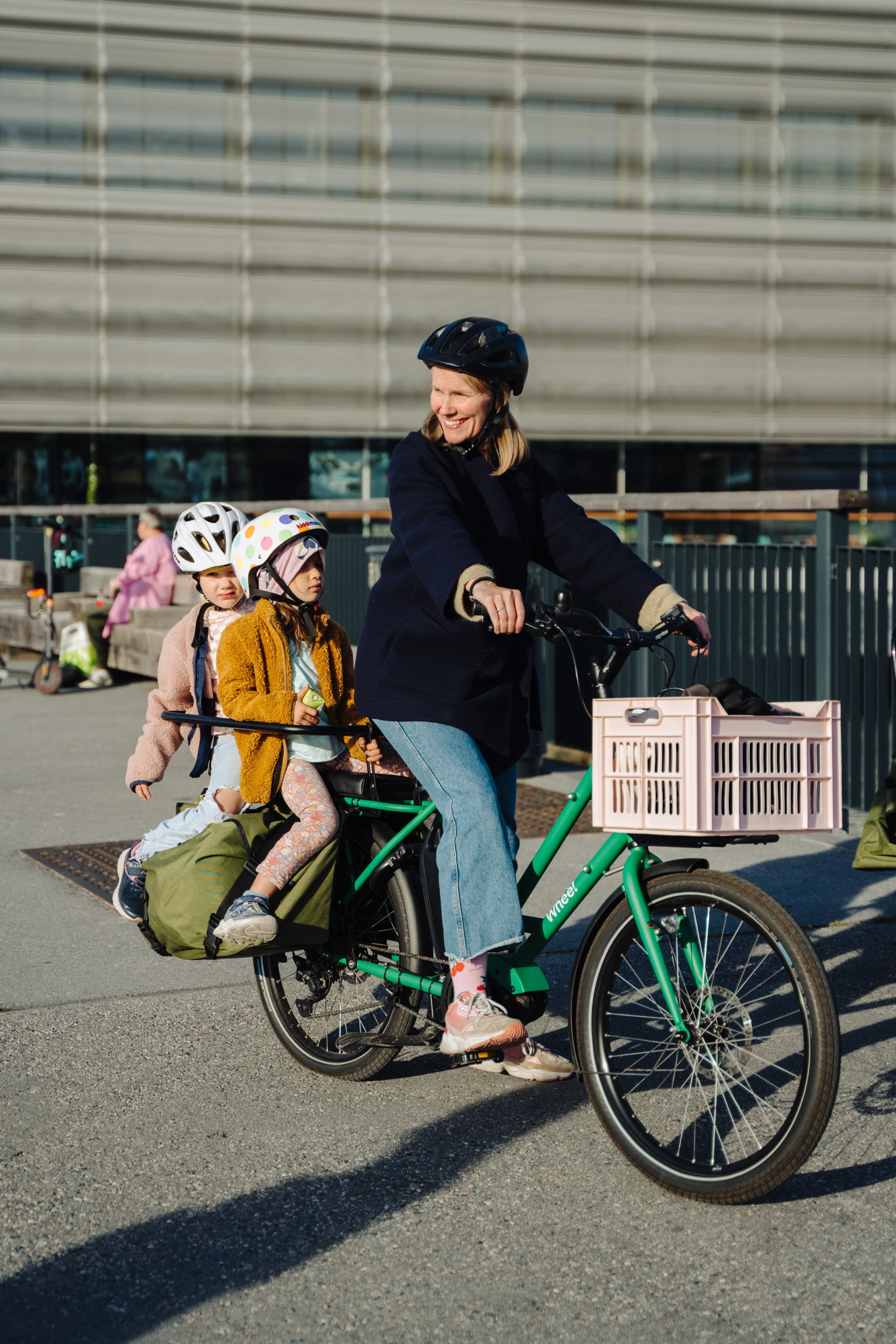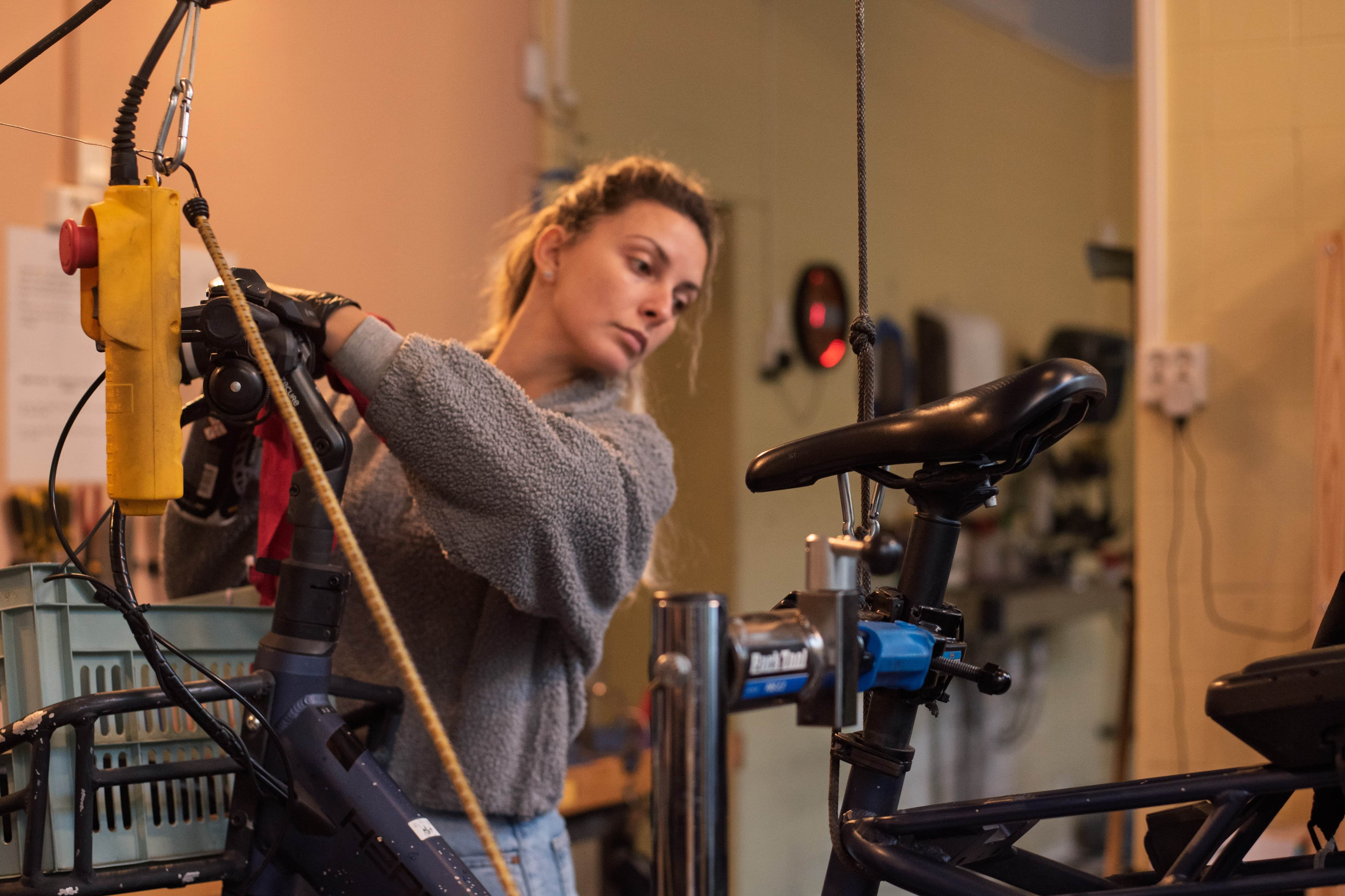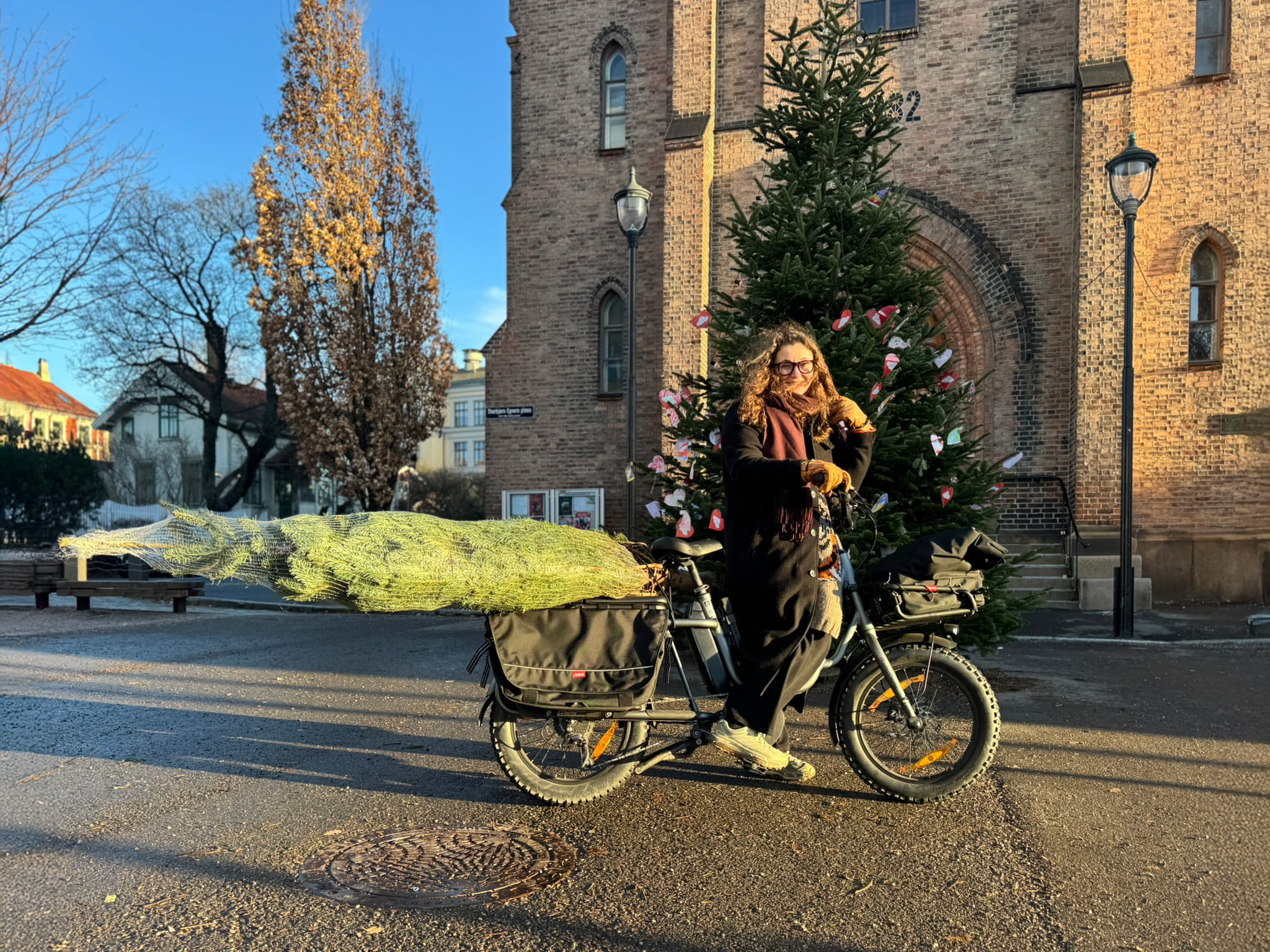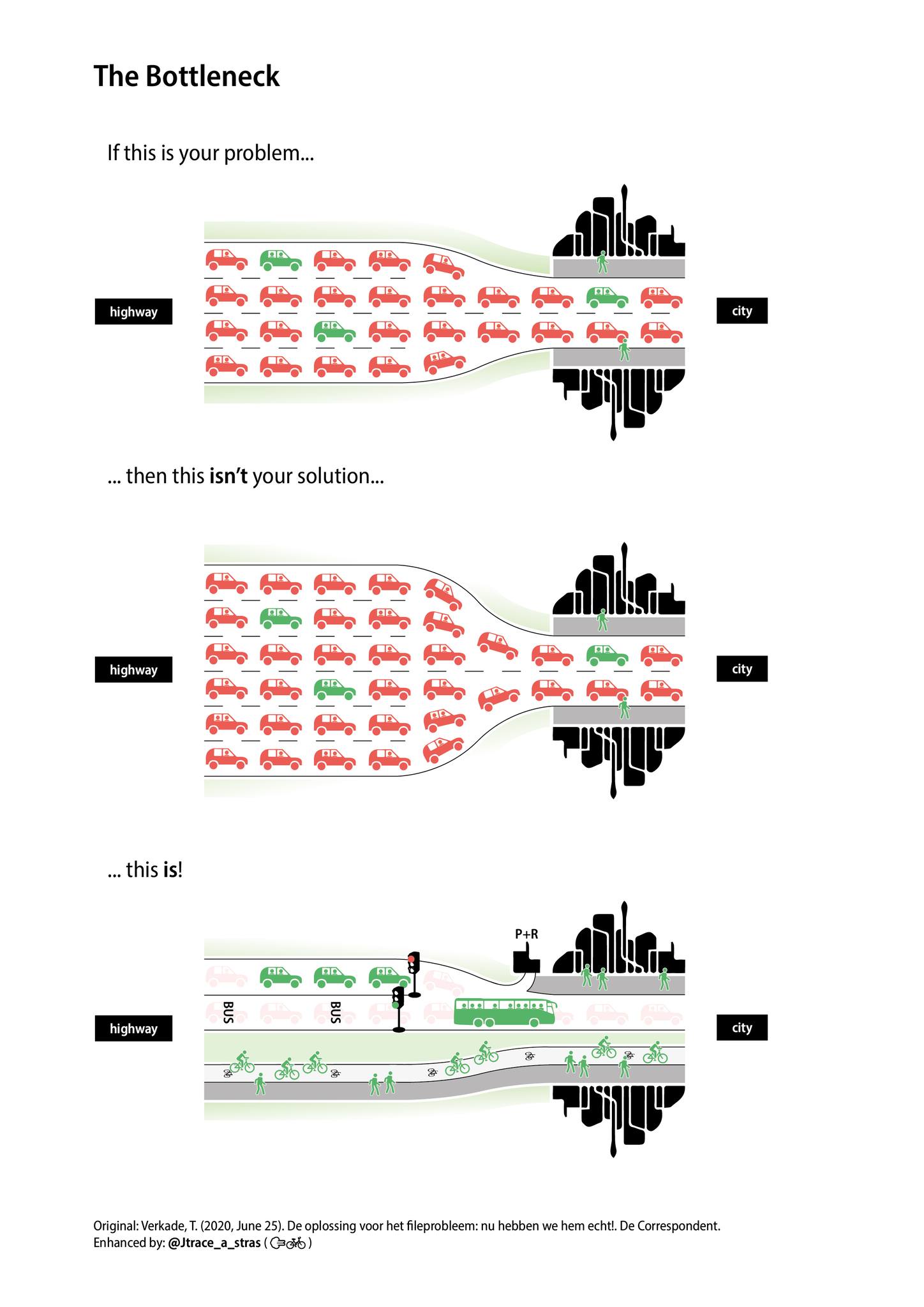
When you've spent considerable time in one city, you begin to notice the nuances that shape everyday life. Safety, cleanliness, and convenience are likely the standards most people care about. If you were a policymaker, improving transportation and infrastructure should be your top priority because a good transportation system is often considered a global benchmark for high-quality living.
Studies show that 93% of transportation behavior changes are driven by family growth. A single person can rely on walking and couples enjoy strolling together. However, space and time become necessary considerations when a child is on the way. Owning a car might mean living further away while living in the city requires dependence on a robust public transportation system.
It was such needs that birthed Kari Anne's first cargo e-bike! It instantly expanded her range of exploring the city. Exorbitant parking fees were no longer a concern. Weekend picnics lightened the burden of finding a parking space. On the back seat, children rode with wind in their faces gleefully whooping “Whee!” as we splashed through puddles, says Kari Anne. With her eyes sparkling, she told me that choosing to use an e-bike was the best decision she has ever made.
This was the beginning of Kari Anne’s life as a cycling evangelist. She not only worked as a traffic advisor for public sectors, driving initiatives for green and blue urban projects, but also organized events promoting cycling. Her dream is to create a livable city for everyday life, and cycling has become her most powerful tool to achieve it. In 2020 World Car Free Day, Kari Anne founded Whee!, Norway’s first electric cargo bike-share company. This model provided a practical and more sustainable mode of transportation, attracting over 200 members within just 24 hours.
Whee! is based in Oslo and specializes in renting Mini Cargo e-bikes on a subscription basis. They offer four annual cleaning and maintenance services, insurance coverage, and a highly efficient anti-theft tracking system. Whee!’s target customers are urban caretakers and women, offering bikes designed for riders as short as 150 cm. With a low frame and stable cargo rack, Whee! bikes ensure safety and balance while carrying loads. The rear seat accommodates children, and the bike’s total load capacity can reach an impressive 220 kg. Its compact design also makes parking and storage safe and convenient. Today, Whee! boasts over 500 members and has been awarded the 2024 Oslo Green Business Award[1].
The Whee! workshop was transformed from a neighborhood dairy store and traditional butcher shop with its high ceilings now accommodating a hoist system. In the approximately 100-square-meter space, three female technicians were busy replacing studded winter tires on bicycles—an annual safety-critical task. Mini Cargo e-bikes were lined up neatly, suspended in rows, awaiting lubing, repairs and testing. These mechanics, some of whom are journalists or designers, share a passion for creating a better environment. Sliding smoothly across the workshop on their stools, they discuss how to build a digital bike health passport system to improve future maintenance efficiency.

However, converting transportation systems depends on government and public will. Many people still hold a romanticized attachment to private cars. Walker, an environmental psychologist, notes that when it comes to driving behavior, individuals often have significant blind spots. Problems such as speeding, carbon emissions and traffic accidents go ignored because car culture has created a positive image of driving. This phenomenon, known as “car brain,” fosters resistance to alternative transportation methods as they challenge the established order of driving. Over the past century, cars have evolved into symbols of status, making us forget what roads without engines once looked like—clean air and unspoiled landscapes.

As climate change intensifies, Oslo, a city of nearly 700,000 people aims to have 25%[2] of its residents using bicycles for daily commuting by 2025. However, policies that overemphasize private electric cars often sideline space for the cycling movement. From an urban design perspective, while electric cars reduce carbon emissions, an overabundance of vehicles isn’t a sustainable solution. Cycling, as a mode of transport, is far more environmentally friendly. Bikes require simpler infrastructure, less maintenance, and minimal parking space, making them ideal for creating livable, climate-friendly cities.
Taiwan exports over 1 million electric bikes to Europe annually[3] and produces one-third of the world’s bicycle components. With excellent manufacturing capabilities and valuable examples from other cities, could we also work on creating a more livable environment together? Imagine a child on the backseat of an e-bike, soothing their tantrum with sunshine and waving to butterflies along the way. This is the simple joy that bicycles bring to life.
On a December afternoon, Kari Anne purchased a two-meter-tall Christmas tree near the church and tied it to her Whee! Bike. With the sunset at her back, riding her proudest ride, she carried both the festive spirit and her mission, pedaling forward, one step closer to her goals.

How (not) to solve a bottleneck.
(Original from “Movement” How to Take Back Our Streets and Transform Our Lives)
Photo Credits: https://whee.no/